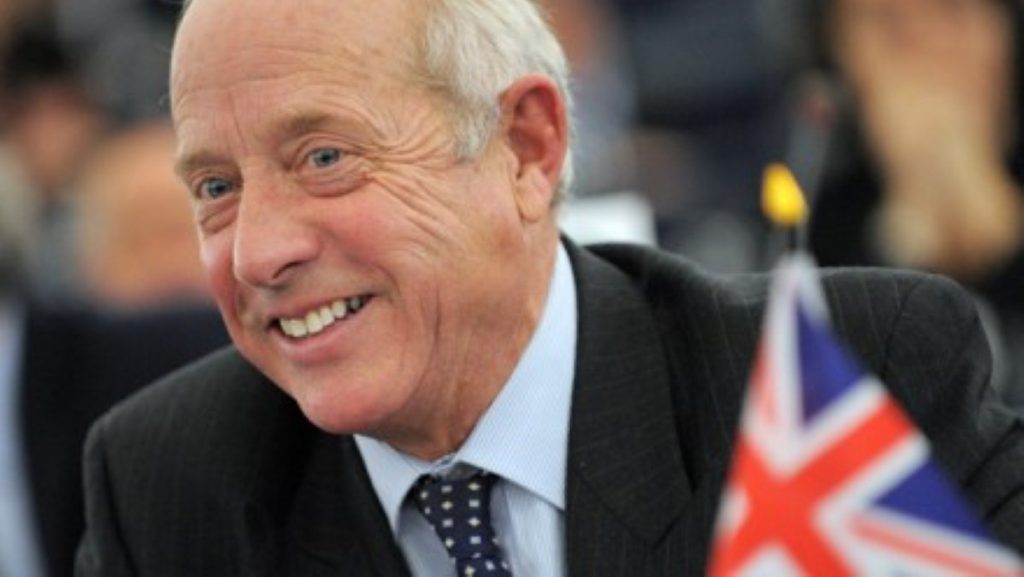Comment: The territorial army can sort out jobless young people
By Godfrey Bloom
When a very old friend of mine refused a major army promotion I started to think about the Territorial Army, our volunteer reserve, and how it is being devalued by this Conservative-led coalition government.
I will not embarrass the officer concerned, nor will I break the Chatham House rule by suggesting where he made his observations on the role and recruitment of the volunteer reserve. But his point on refusing a one star (brigadier) appointment to carry out the role of reserve 'tsar' was its perceived inevitable failure. To refuse such promotion is expensive, in terms of salary and pension. It was a three year posting. One star rank in the modern tiny army is now probably the ultimate dream of any young Sandhurst cadet (my personal ambition was to avoid actually being cashiered).
Most of my undistinguished career was spent with the logistics wing of 4th Armoured Division BAOR, although many of my fun days were with a London Yeomanry Squadron. In one role or another I clocked up 30 years, my last as head of recruitment and training for a Yorkshire Territorial Regiment.


There is a long and noble tradition of volunteer reserve commitment in England. Arguably in one form or another for nearly 900 years. Under the current system English archers of yesteryear would qualify today as specialist forces, the main body or reserve in later years was militia, varied in its complex history and raised for home defence. Aficionados of Jane Austen, Surtees or Dickens will be familiar with the genre.
One of my own forebears served as a junior officer in the Western Suffolk Militia in the middle seventeen hundreds. Records show my esteemed colleague William the earl of Dartmouth's forebears were in an adjacent camp in 1774. Needless to say, being a toff, his family were colonels who commanded or raised the regiment. The point being the tradition is long standing, as is the relationship with the county of recruitment and all social ranks played their part.
Post Crimea the army underwent complete restructuring, it took the form of the Cardwell reforms. Later in the early twentieth century, further reforms, especially to reserve forces, were enacted by the then-liberal administration's giant intellect JBS Haldane.
He established the Territorial Army, the strategic purpose of which was to enable the release of regular divisions for service abroad. The Terriers were primarily for home defence. (Not to be confused with the Home Guard, something quite different and very temporary raised in the early years of WWII).
In both world wars (yes I know there was only one in two parts) the Terriers served with extraordinary distinction and gained some of the most famous battle honours ever awarded.
So we know the concept is valid. No criticism from me as to the strategy. However, the implementation, as my erstwhile chum knew, was doomed to failure – so obvious to him he sacrificed his promotion to protect his professional reputation.
The Haldane reforms from militia to territorial were a natural progression, a 'shadow' regular army with the same training, equipment and pay grades but with a 'volunteer and county' ethos. It worked for the British, as any military campaign history of north Africa, northern Europe, Italy or Burma will testify. The territorial regiments marched to war with colours flying and bands playing. The Gulf wars saw a political betrayal of the concept, especially in logistics where the British command were crying out for first and second line transport.
Many of us had been training for decades for just such a call. Weekends given up, wives and families abandoned at holiday time for annual training, often freezing and miserable in northern Germany. Then when we were needed they did not mobilise us but took us piecemeal. A driver here, radio operator there, signals expert posted willy nilly. This is not what we joined for. Morale slumped. Many left – often the best and most committed. I had a pretty full and frank discussion with General Learmont at the time and he understood completely. It was a political decision. The Territorial Army was never supposed to be a regular army on the cheap. No pensions, no family housing, no medical responsibilities. It was and is there for general mobilisation.
We no longer have a society which understands 'pro bono publico'. That was killed by the welfare state. We now live in the 'me first' society which started with the trade union domination of politics in the 1960's, subsequently overtaken by the corporate and social welfare society.
How can it be possible for there to be 30% youth unemployment in many parts of the country when the TA offers full training and daily rates of pay commensurate with the regular army? Trades, sport and genuine comradeship available on the doorstep. There should be a queue outside every TA barracks.
If the TA were reinstated as Haldane intended and governments curtailed their love of military adventurism, small employers would not need to fear employees joining. In my young days a TA commission was a stepping stone to accelerate promotion, what better leadership training could a young man or woman have?
The army fights into the headwind of a failing society and faltering economy. My chum was right to get out. The one thing every solider knows deep in his soul, past or present, general or private, politicians will always let you down.
Godfrey Bloom is an independent member of the European Parliament for Yorkshire and the Humber.
The opinions in politics.co.uk's Comment and Analysis section are those of the author and are no reflection of the views of the website or its owners.









